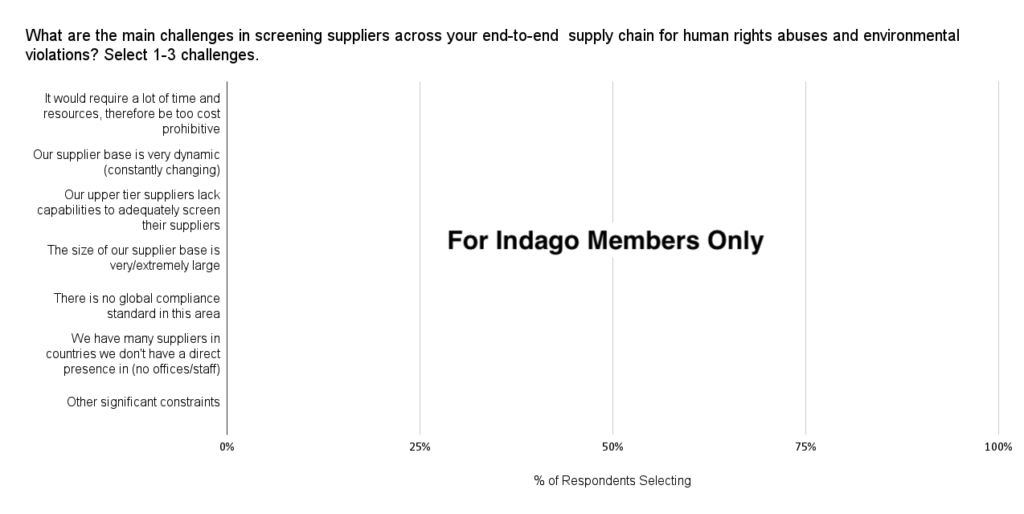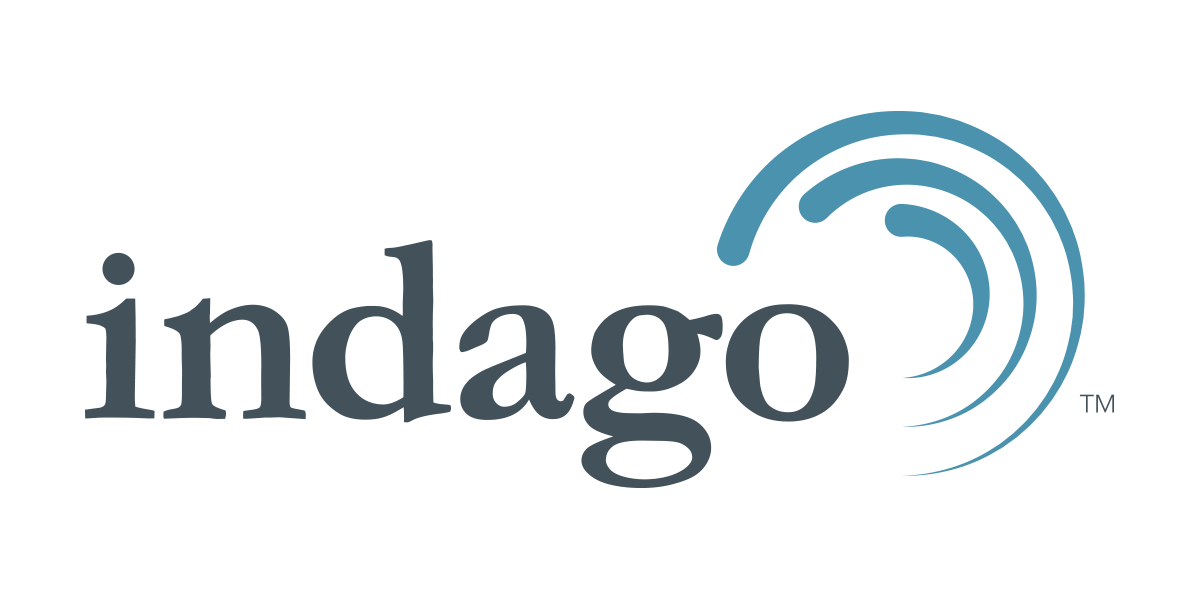As reported by Petra Sorge and William Boston in the Wall Street Journal in March 2021 (“Germany to Make Firms Responsible for Policing Abuses by Global Suppliers”):
Germany is set to force companies to screen suppliers for environmental violations and human-rights abuses, such as illegal mining and child labor…Under the bill, any company based in Germany with 3,000 employees or more has two years to set up compliance procedures to monitor and stop abuses within its supply chains. They must also create an alert system that would allow third parties and victims to safely report any abuse…Companies with annual revenue of more than 400 million euros (around $484 million) that fail to meet the requirements could face fines of up to 2% of annual sales.
If your company were subjected to a law similar to the one proposed in Germany, how difficult would it be to comply — that is, ensure no environmental violations or human rights abuses existed in your end-to-end supply chains?
We asked our Indago supply chain research community that question a few weeks ago. A third of our member respondents (33%) said that screening suppliers to ensure no environmental violations or human rights abuses existed in their end-to-end supply chains would be “Moderately Difficult.” However, 38% said that it would be “Very/Extremely Difficult,” while 24% said that it would be “Slightly” or “Not difficult at all.”

“If you are doing business overseas, then you must be prepared and budget time and money to ensure that your suppliers are in compliance,” said one Indago member.
Another member added, “Knowing a supply chain all the way down to the raw materials is exceedingly difficult given the numerous obstacles that exist and fluctuations in commodity providers. That being said, it is a goal worth achieving and hopefully a new industry will spring up to help identify and correct these human rights violations.”
Here are some other value-added comments from our Indago members, who are all supply chain and logistics professionals from manufacturing, retail, and distribution companies:
“We can request written acceptance of our Code of Conduct by our suppliers acknowledging conformance to these defined requirements. However, ensuring compliance is a much more difficult endeavor (i.e., time, resources, global standards, etc.)”
“I think this is a laudable goal, but I’m not sure that putting the onus on companies is viable. Perhaps it might be better performed at the government level?”
“At our company, our employees are trained to detect and be cautious when dealing with suppliers. We are taught to be keen and to look for signs that could mean modern day slavery or human rights abuse. Having a global standard and different governments helping the cause would only make things easier for us since we already have a strong foundation in place.”
“Achieving compliance in the near term is likely not [possible] but beginning to have these conversations and driving change is important. Holding suppliers accountable is key but the 2% [of annual sales fine] is weak in terms of penalties. This will drive no real change.”
We also asked our Indago members, “What are the main challenges in screening suppliers across your end-to-end supply chain for human rights abuses and environmental violations?” The results are available to Indago members only.

What do you think of this proposed law? How difficult would it be to ensure no environmental violations or human rights abuses existed in your end-to-end supply chains? What are the biggest challenges? Post a comment and share your perspective!
Also, for related commentary, see “Forced Labor In Supply Chains: The Problem Persists.”
Join Indago
If you’re a supply chain or logistics practitioner from a manufacturing, retail, or distribution company, I encourage you to learn more about Indago and join our research community. It is confidential, there is no cost to join and the time commitment is minimal (2-5 minutes per week) — plus your participation will help support charitable causes like JDRF, American Logistics Aid Network, American Cancer Society, Feeding America, and Make-A-Wish.
You can also follow us on LinkedIn to stay informed of our latest research results and news.


